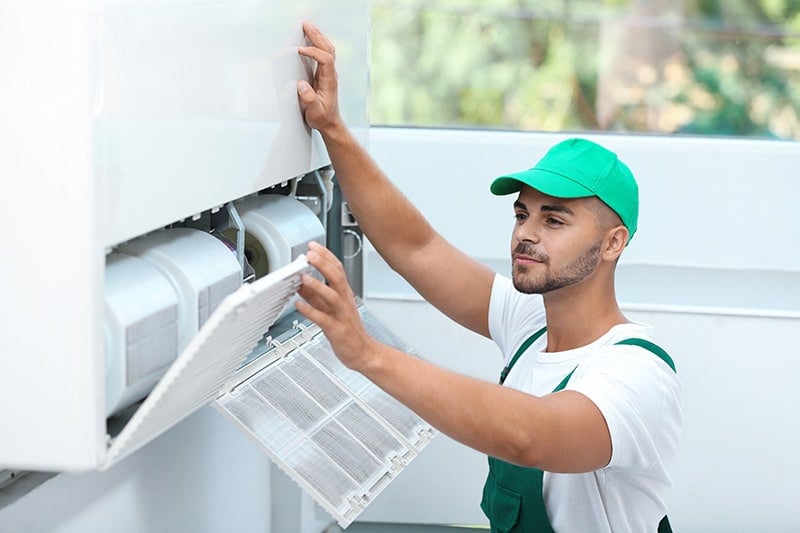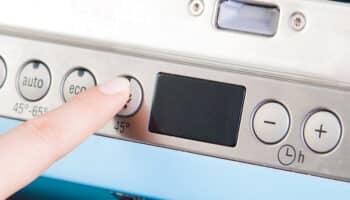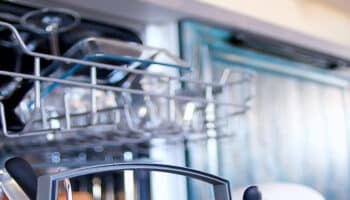We've independently reviewed this article to make sure it's as accurate as we can make it.
To find out more about our article creation and review process, check out our editorial guidelines.
Is your dishwasher not heating water?
I know how annoying it can be to have this happen. After all, cold water cannot wash dishes as effectively as hot water.
If your dishwasher is not heating the water, ensure it’s connected to the hot water supply line and check the thermostat. I also recommend inspecting the heating element, electrical wiring, and circuit board.
Read on to solve your dishwasher heating problem today!
Why trust us? This article was written by Craig Anderson and James Blackford.
Craig has helped thousands of other homeowners repair their appliances since 2016. James is one of our resident appliance experts, with over 16 years of experience. He currently works as a Master Technician for SquareTrade, and runs his own appliance repair business.
6 Reasons Why Your Dishwasher Is Not Heating Water
If the water in your dishwasher isn’t getting hot enough, it can lead to difficulties in effectively cleaning and drying your dishes.
However, there’s no need to worry! In this section, I’ll guide you through the various reasons why your dishwasher is not getting hot and provide different solutions.
#1 Your Dishwasher Isn’t Connected to the Hot Water Supply
If your dishwasher is not heating the water, I first recommend making sure it’s connected to the hot water supply.
While you’re at it, please inspect the supply line. If it’s kinked or damaged, it can restrict the flow of hot water and cause dishwasher temperature issues. In such cases, it’s best to replace the supply line.
Tip: Since most dishwashers and kitchen sinks share the same hot water line, you can estimate the water temperature by placing your hand under the running water from your sink. If you need to pull it out after a few seconds because it’s too hot, the water is likely at the correct temperature (120ºF) to dissolve your soap pods and clean your dishes effectively.
#2 The Thermostat Is Defective
If your dishwasher is not heating the water, the thermostat is likely damaged.
You see, this component monitors the water temperature and communicates with the heating element to maintain the desired temperature. For example, if the water is too cold, the thermostat sends a signal to the heating element to start heating the water.
So, if the thermostat is faulty, your dishwasher won’t know when to turn the heating element on to keep the water at the required temperature to wash the dishes properly. There will be no regulation of temperature whatsoever.
The good news is that it is relatively easy to test the condition of the thermostat; you’ll just need a multimeter. Please check the manufacturer’s manual to determine the correct resistance reading and find the right terminals to check.
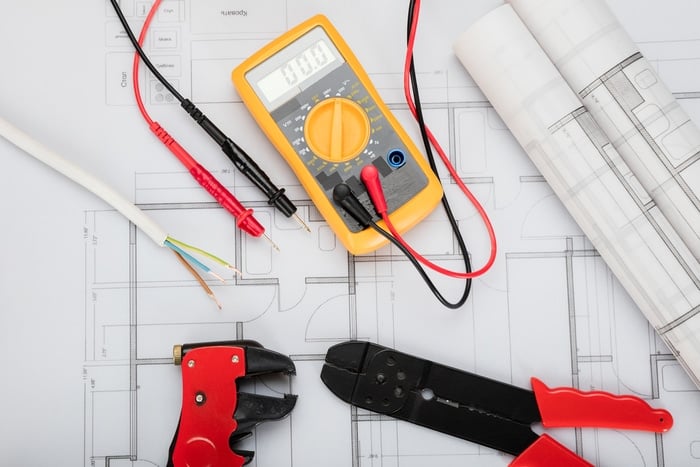
If you can’t find the manual, don’t worry! Take a look at our detailed guide on how to find any product’s manual online:
If the thermostat was the culprit for your dishwasher not getting hot, I recommend replacing the component.
Just keep in mind that it can be challenging to access the thermostat, as it is typically located underneath the appliance. If you don’t feel comfortable replacing the thermostat yourself, please call a professional.
#3 The Heating Element Is Faulty
In my experience, when a dishwasher is not heating the water, it’s likely due to a faulty heating element.
You see, the heating element is responsible for more than controlling the temperature of the water as it also aids in drying the dishes. This component is generally built to last for some time, but it is possible to burn out or become damaged due to an electrical fault.
Heating element issues can occur regardless of whether your dishwasher is hooked up to the cold or hot water supply.
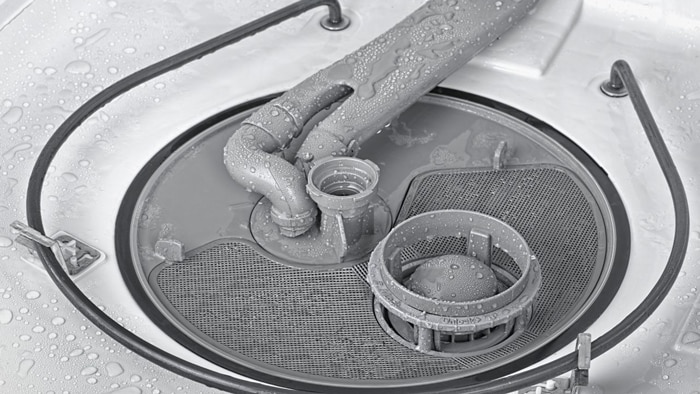
You can visually inspect the heating element and check if its wires look blackened or burnt.
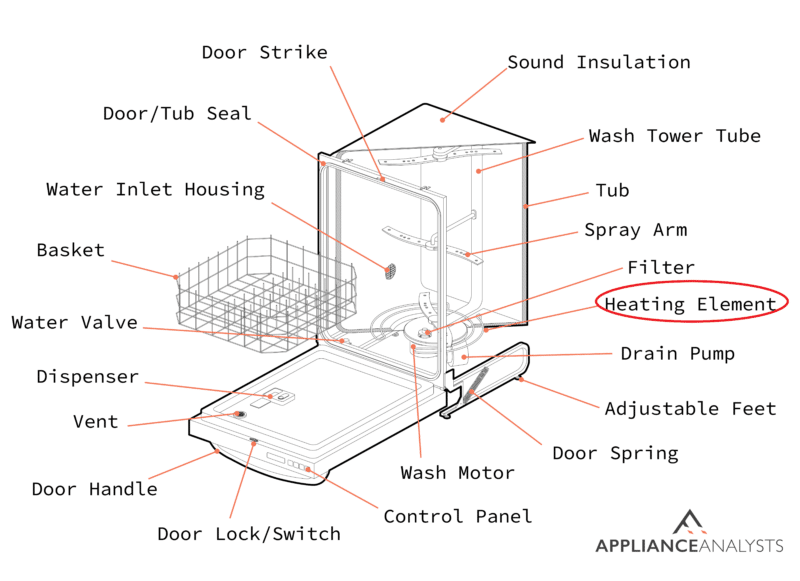
I also recommend checking the resistance levels of the heating element with a multimeter. You should get a reading between 4 and 14 ohms, but please verify this with the manufacturer’s manual.
If the multimeter shows a different reading, it indicates that the heating element suffered some damage, such as a broken wire or blown fuse, and it needs to be replaced.
Like the thermostat, the heating element is cheap to purchase ($20 to $50) and easy to replace.
Bear in mind that if your heating element is built into your wash pump assembly, you’ll need to call a professional, as it can be much more difficult to replace.
#4 The Electrical Wiring Is Damaged
If your dishwasher is still not getting hot, then I recommend checking the electrical wiring.
You see, all of the components of your dishwasher are connected by electrical wiring. Without those electric wires, your dishwasher would not work—at least not properly.
In my experience, these wires can deteriorate due to mechanical issues and cause your dishwasher not to heat the water.
In such cases, the electrical wiring will need to be replaced. You can do it yourself, but if you don’t feel comfortable, I recommended calling a professional.
If you want to get any replacement part – or see how much one would cost – click to enter your model number in the search bar below. Our partners at AppliancePartsPros stock almost every part with free guides on how to install them.

#5 The Control Board Is Malfunctioning
If you’ve tried the fixes above, but your dishwasher is still not heating the water, it’s time for us to check the control board.
The control board is essentially your dishwasher’s brain, as it manages all of the unit’s functions, such as the motor, water heating, etc.
Therefore, if something is wrong with the control board, it won’t send the necessary signals to activate the heating element, and your dishwasher won’t heat the water.
You can replace the control board. However, keep in mind that it can be an expensive repair (over $300!). So, if your dishwasher is over ten years old, I recommend replacing the whole unit instead.
To ensure optimal performance and consistent water heating in your dishwasher, I recommend checking out our Maintenance & Care Guide.
Conclusion
Hopefully, with the help of this article, you’ll be able to fix the issue keeping your dishwasher from heating the water.
Remember to connect your dishwasher to the hot water supply line. It’s also important to check the thermostat, heating element, electrical wiring, and control board to ensure the water in your dishwasher is at the right temperature.
Thank you so much for reading! If you ever encounter any other issues with your dishwasher or home appliances, please check out our other articles.
Good luck!


